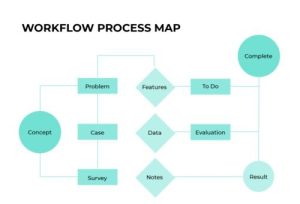In the limitless and always growing fields of science and technology, order is absolutely vital. The basic organizing idea is “Category,” which turns an ocean of data into navigable, manageable chunks. From the broad divisions of physics and biology to the smallest differences inside artificial intelligence algorithms or molecular structures, categories offer a vital foundation for understanding, investigating, and developing knowledge. They help us to organize similar ideas, spot trends, enable research, and make sure that fresh ideas fit a relevant background. This project will investigate the important function of classification in scientific and technical advancement, with particular attention to how well it supports research, improves learning, and helps to efficiently manage an ever complicated body of knowledge.
Organizing the Universe of Science and Technology
The Essential Function of Categories for Discovery and Research
Good classification is more than just organization; it’s a tool directly influencing the direction and speed of scientific and technological advancement. Categories save several hours by bringing researchers straight to pertinent bodies of work, therefore expediting the literature evaluation process. Many repositories of data become essentially useless without strong classification. Neally arranged data reveals linkages and patterns that might otherwise remain buried. In bioinformatics, for example, a researcher investigating a particular Category could rapidly spot regions of intense research, developing trends, or, on the other hand, under researched gaps offering fresh prospects for innovative work. Planning strategic research depends much on this higher-level viewpoint. In an era of multidisciplinary science, well defined categories provide a shared vocabulary. Agreed-upon categories guarantee that scientists working on a project from several disciplines are all working from the same framework, therefore defining the extent of their work and efficiently combining many points of view.

Categories as Systems of Knowledge Management and Learning Tools
Beyond current research, categories are basic for teaching and long-term management of scientific and technological knowledge. Categories help students and future professionals move logically through challenging topics. From basic ideas to complex applications, a curriculum arranged by “Category” lets students develop knowledge bit by bit, grasp fundamental ideas, and see how many disciplines relate. Good learning depends on a disciplined approach. In the era of big data, strong knowledge management systems are mostly dependent on efficient classification. To arrange vast amounts of data from genomes to astronomical observations, scientific databases depend on complex classification. Without precise classifications, large data would remain a disorderly mess; this structure enables effective querying, statistical analysis, and the extraction of relevant insights, so turning raw data into useful knowledge. A well-crafted classification system also lets people quickly move across allied disciplines. A robotics student, for instance, would be intrigued in a Category on sophisticated sensors and thereafter investigate subcategories in photonics or materials science. One finds a rich ground for invention in this cross-pollination of ideas.
Conclusion
In science and technology, the idea of “category” is a modest but vital tool. It offers the necessary framework to let us negotiate, understand, and finally extend the always rising total of human knowledge. Effective categorization is about empowering discovery, accelerating innovation, and ensuring that the complex, dynamic world of science and technology remains accessible and coherent for all, not only about organization—from facilitating sophisticated research and fostering collaboration to structuring educational paths and managing vast datasets.
Transform Your Workflow with Smart Tech



